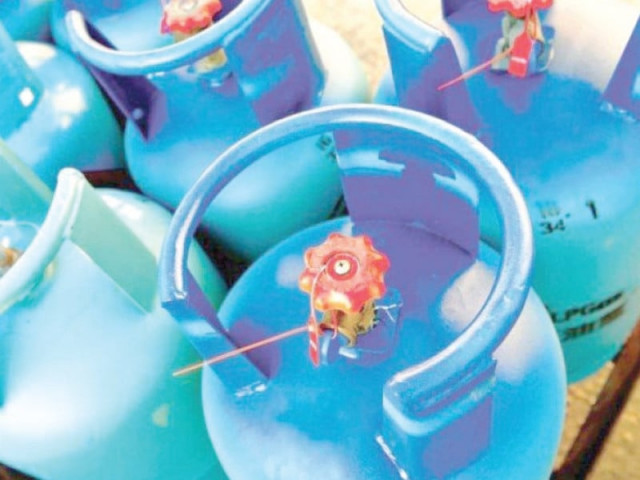LPG producers slam intervention
Say LPG allocation to Sui companies will fuel anti-competitive practices

Liquefied petroleum gas (LPG) producing and marketing companies have opposed the government’s intervention in the allocation of LPG supplies to Sui companies without any bidding process under the new proposed LPG Policy 2024, fearing it will lead to anti-competitive practices and kill the spirit of deregulation.
In the LPG Policy 2024, the Petroleum Division has proposed that all LPG producers will dedicate up to 10% of their production to Sui gas firms and marketing companies for exclusive consumption in LPG air-mix plants.
These plants have been developed and operated by Sui companies for energy supply in far-flung and hilly areas where piped natural gas is not available.
The Petroleum Division proposed that an additional 5% of LPG production would be dedicated to marketing companies for exclusive supplies in Azad Jammu and Kashmir (AJK) and Gilgit-Baltistan.
These dedicated volumes (15%) will be offered without following a bidding process and at a weighted average price of LPG. The Oil and Gas Regulatory Authority (Ogra) will ensure compliance with the proposals. However, LPG producers have opposed the allocation of 15% production to Sui gas and marketing companies without going into the bidding process, which they termed “anti-competitive”.
Besides being anti-competitive, they stressed, the preferential allocation of LPG in percentage terms was also against the spirit of the deregulation regime.
According to the new policy, LPG producers can sell partially or wholly their remaining production (excluding the dedicated sales of 15%) to their subsidiaries involved in marketing under long-term contracts, provided such subsidiaries market and distribute the entire volumes on their own or through their distributors’ network without resale to any other marketing company or its distributor.
For the leftover quantities, LPG producers will follow a monthly, quarterly or yearly competitive bidding process to dispose of and sell their product to the marketing companies having a valid Ogra licence and meeting the pre-qualification criteria, at a competitive market price under the deregulated pricing regime.
All LPG producers, within six months, shall develop the pre-qualification criteria, to be followed for the sale of LPG to marketing companies with the objective of a transparent and efficient auction.
According to industry officials, the regulator has given licences to LPG marketing companies allegedly without due diligence as currently over 200 marketing firms are operating but they do not have any LPG allocation.
They asked the government to formulate strict criteria for granting LPG licences and make it mandatory for the companies to develop storages.
Industry officials were of the view that the government wanted to revert to the old mechanism of having control over LPG allocation that had resulted in scandals in the past.
They said that the current mechanism was up to the mark where no transparency-related complaints had been received. Even though the process followed by Oil and Gas Development Company Limited (OGDCL) had been challenged in court, it endorsed the mechanism that followed competitive practices.
At present, state-owned companies offer a “signature bonus” to attract potential bidders for LPG allocation. However, according to the new policy, signature bonus or similar premiums will be discontinued in future.
The settlement of existing contracts will remain a challenge for the LPG marketing companies and producers as after expiry of the existing contracts all producers will move to a competitive bidding process. Ogra will monitor and ensure that the practice of signature bonus is not re-invented.
LPG industry officials cautioned that too much intervention on the part of the government would destroy the sector. State-owned Sui companies have already created an unsustainable circular debt for companies like Pakistan LNG Limited (PLL), OGDCL and Pakistan Petroleum Limited (PPL).
If LPG firms are forced to allocate 15% of production to Sui companies without bidding, these companies will receive over 300 metric tons per day, which equals to around 10,000 metric tons per month.
They called it a huge volume for Sui companies which did not have experience in handling LPG supplies and could create trouble for other gas producing companies due to potential high losses and theft.
“This will deal another blow to the gas producers and increase the circular debt, which is already above Rs2 trillion in the gas sector,” an industry official remarked.
Fiscal measures
The LPG industry, however, backed the incentives proposed in the new policy. There will be zero indigenous import duty on plant, machinery, equipment and material for enhancing LPG production.
The government will grant a 10-year tax holiday for new LPG production. There will be zero petroleum levy on locally produced LPG.
In addition, the LPG industry will develop storage facilities at import terminals across the country. There will be zero advance income tax on imports. Both imported and domestic LPG shall attract a uniform tax treatment (the applicable corporate income tax) on net earnings.
There is 5% general sales tax on imported and locally produced LPG, which will be reduced to 1% per annum and then to 0% in the subsequent five years.
Published in The Express Tribune, April 14th, 2024.
Like Business on Facebook, follow @TribuneBiz on Twitter to stay informed and join in the conversation.


















COMMENTS
Comments are moderated and generally will be posted if they are on-topic and not abusive.
For more information, please see our Comments FAQ